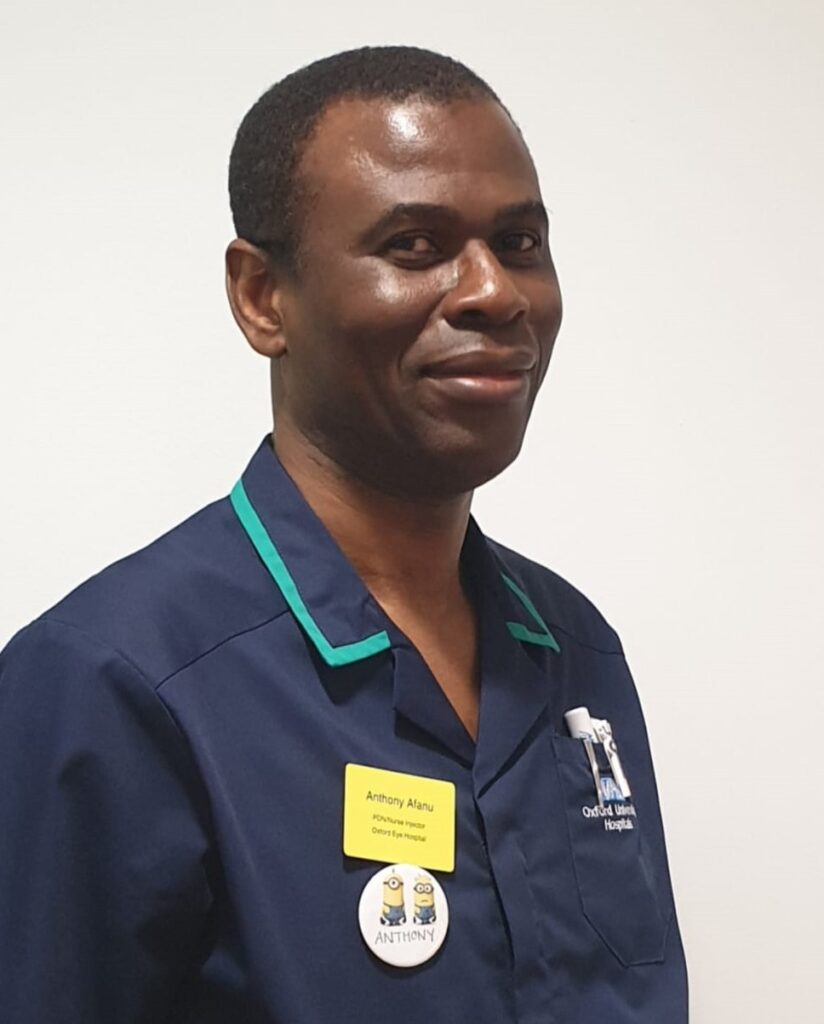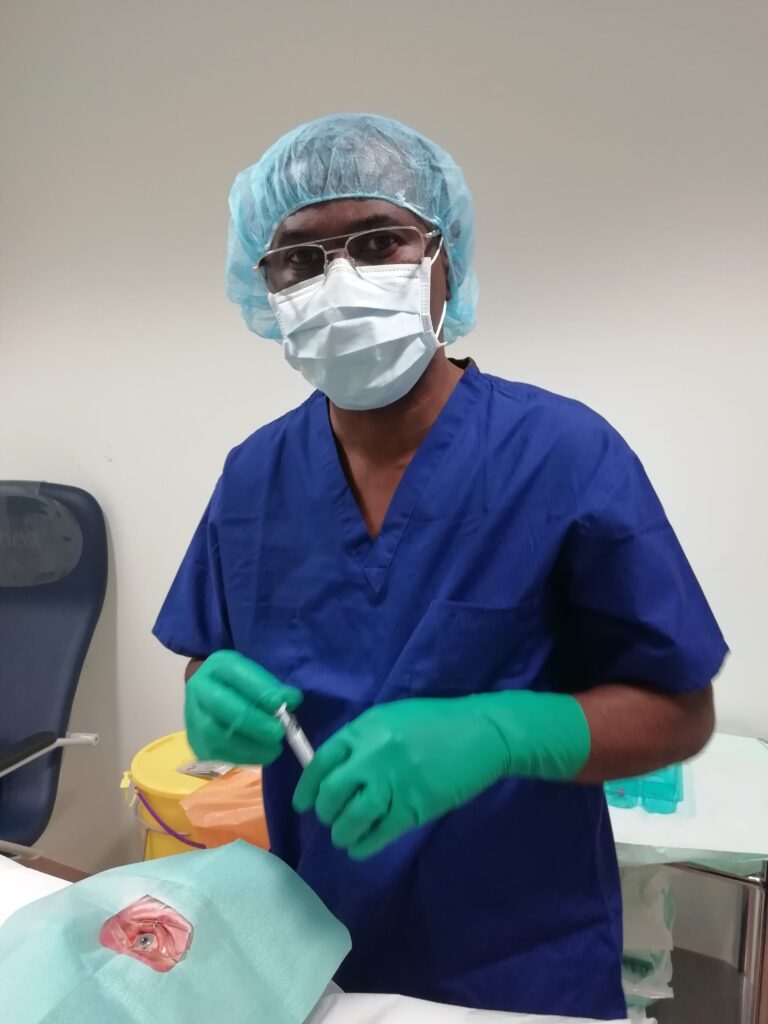
Anthony Afanu is the practice, education and development lead nurse for the Oxford Eye Hospital and Programme Coordinator and Module Lead for the Post Graduate Certificate (PGCert) in Advanced Patient Centred Ophthalmic Care, at Oxford University Hospitals, a programme delivered in partnership with the University of Northampton. The Oxford BRC is supporting him in his Doctor of Education programme, where his research focuses on how to support the self-directed learning of international nurses in higher education.
Anthony’s research is very much influenced by his own experience of being an international nurse navigating the UK academic system – and by those of the overseas nurses he teaches.
“As a student I went through a lot of challenges with self-directed learning. It was a massive transition from the way teaching and learning was done in my native country, which was more or less rote learning, to an environment where the emphasis is on the learner developing strategies and being able to evaluate their own learning,” explains Anthony, who has over 20 years’ experience working with OUH.
“As an associate lecturer – and with the PGCert – I noted that there were similarities with the students coming from outside the UK and those who had not done any learning in the UK. It was quite a big struggle for them. So, when I decided to do my Doctor of Education studies, I thought ‘this group of students have probably been overlooked and probably nobody has found out what they are going through and how they can be supported’,”
Anthony came to the UK from Ghana in 2001 and joined OUH in 2002, when he worked in the old Radcliffe Infirmary, making the move to the John Radcliffe when its West Wing was opened in 2008.
In that time, he has seen the benefit of learning, but also his aptitude for teaching; he did a post qualification nursing degree at the University of West London (then Thames Valley University) before going on to do a Masters in health and social care management and non-medical prescribing at Oxford Brookes University. He then studied education at Brookes as well as being one of the first nurses to be trained to carry out intravitreal injections.
As well as doing associate lecturing at Brookes, he helped develop a curriculum for the new post-graduate certificate in ophthalmic nursing and was then persuaded to stay on and lead the programme, which got under way in 2017.
Now he is in the fifth year of the Doctor of Education programme; he funded the first three years himself, but the Oxford BRC gave him a grant for his fourth-year fees, as well as giving him a bursary which covered nine and a half hours a week for 33 weeks.
“The BRC grant was a big relief, and the bursary is a massive help because it allows me the time to do my research – and that research is going to support my teaching,” Anthony says.

“For internationally educated nurses as a group, studying in higher education has not been looked at, so I can contribute to a new area of knowledge and provide empirical evidence to show they are struggling and need to be helped.”
Anthony, who still does clinical work in the Eye Hospital and enjoys the contact with the patients, adds that giving overseas nurses the skills that come with self-directed learning will ultimately have a beneficial impact on patient care.
“Self-directed learning increases the ability of student nurses to be assertive and deliver proactive care that is safe and effective, as well as to be able to make decisions in these ever-changing healthcare settings. If you are an international nurse and are used to being told what to do and not challenging the status quo, when you come into an environment like this, you tend to be more passive and patient care is affected.
“The knowledge gained from this research is going to help those international nurses to develop those skills, which can impact positively on how they make clinical decisions,” Anthony says.